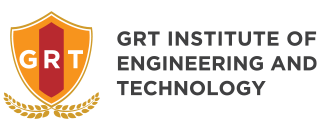
Electrical & Electronics Engineering is a dynamic and exciting discipline that continues to serve the needs ofthe society, through existing technologies and the development of innovative ideas. The BE – EEE Program was duly approved by AICTE, Delhi and affiliated to Anna University, Chennai.
The department is guided by principal Dr.S.Arumugam and is backed by a team of motivated, dedicated, well qualified and experienced staff members from the EEE stream, whoimpart the highest standards of education.
The department is committed tomoulding graduates to become experts in their chosen fields by encouraging them to become members of professional societies and broaden their knowledge. The Department has 10 well- equipped labs, as well as a well organised Society of Electrical & Electronics Engineers Association.
This branch of study has the unique advantage of being a combination of both Electrical and Electronics Engineering, thus providing students with the double benefit of studying two subjects. This offers a double advantage for placements in companies related to both fields.
The demand for electrical power and electronic systems is rapidly increasing, so Electrical and Electronics’ engineers are in great demand to meet the requirements of a growing industrial base. Electrical and Electronics’ engineers are mainly employed in electrical and electronics equipment manufacturing, in the industrial and power sectors.
Vision & Mission
Department Vision
To help the institute in providing competitive engineering education to the learner and bring out quality professionals in the field of Electrical & Electronics Engineering, who can meet the industrial needs by taking up existing, new engineering and social challenges.
Department Mission
M1: To provide quality and effective training program in the domain of Electrical & Electronics Engineering through curriculum and state of art laboratories.
M2: To Enrich our graduates with successful professional careers in industry, government, academia or non-profit organizations.
M3: Extending the sustainable knowledge through research and entrepreneurship to motivate faculty and students for benefit of society.
Program Educational Objectives (PEOs)
PEO1: Find employment in Core Electrical and Electronics Engineering and service sectors.
PEO2: Get elevated to technical lead position and lead the organization competitively.
PEO3: Enter into higher studies leading to post-graduate and research degrees. Become consultant and provide solutions to the practical problems of core organization.
PEO4: Become an entrepreneur and be part of electrical and electronics product and service industries.
Programme Outcomes (POs)
PO1: Engineering knowledge: Apply the knowledge of mathematics, science, engineering fundamentals, and an engineering specialization to the solution of complex engineering problems.
PO2: Problem analysis: Identify, formulate, review research literature, and analyze complex engineering problems reaching substantiated conclusions using first principles of mathematics, natural sciences, and engineering sciences.
PO3: Design/development of solutions: Design solutions for complex engineering problems and design system components or processes that meet the specified needs with appropriate consideration for the public health and safety, and the cultural, societal, and environmental considerations.
PO4: Conduct investigations of complex problems: Use research-based knowledge and research methods including design of experiments, analysis and interpretation of data, and synthesis of the information to provide valid conclusions.
PO5: Modern tool usage: Create, select, and apply appropriate techniques, resources, and modern engineering and IT tools including prediction and modeling to complex engineering activities with an understanding of the limitations.
PO6: The engineer and society: Apply reasoning informed by the contextual knowledge to assess societal, health, safety, legal and cultural issues and the consequent responsibilities relevant to the professional engineering practice.
PO7: Environment and sustainability: Understand the impact of the professional engineering solutions in societal and environmental contexts, and demonstrate the knowledge of, and need for sustainable development.
PO8: Ethics: Apply ethical principles and commit to professional ethics and responsibilities and norms of the engineering practice.
PO9: Individual and team work: Function effectively as an individual, and as a member or leader in diverse teams, and in multidisciplinary settings.
PO10: Communication: Communicate effectively on complex engineering activities with the engineering community and with society at large, such as, being able to comprehend and write effective reports and design documentation, make effective presentations, and give and receive clear instructions.
PO11: Project management and finance: Demonstrate knowledge and understanding of the engineering and management principles and apply these to one’s own work, as a member and leader in a team, to manage projects and in multidisciplinary environments.
PO12: Life-long learning: Recognize the need for, and have the preparation and ability to engage in independent and life-long learning in the broadest context of technological change.
Program Specific Outcome (PSOs)
PSO1: Foundation of Electrical Engineering: Ability to understand the principles and working of electrical components, circuits, systems and control that is forming a part of power system. Students can assess the power management, auditing, crisis and energy saving aspects.
PSO2: Foundation of Mathematical Concepts: Ability to apply mathematical methodologies to solve problems related with electrical engineering using appropriate engineering tools and algorithms.
PSO3: Computing and Research Ability: Ability to use knowledge in various domains to identify research gaps and hence to provide solution which leads to new ideas and innovations.
EEE Lecture Videos
| S.No. | TOPIC’S | VIDEO LINK |
| 1 | EE3403- MEASUREMENTS & INSTRUMENTATION By Dr.S.SWAPNA(ASSO.PROF/EEE) TOPICS:CLASSIFICATION OF INSTRUMENTS | VIEW |
